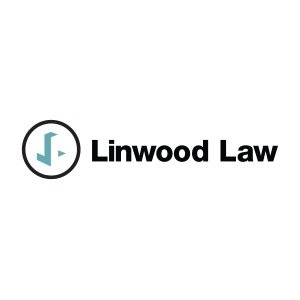Best Domestic Violence Lawyers in Christchurch
Share your needs with us, get contacted by law firms.
Free. Takes 2 min.
Free Guide to Hiring a Family Lawyer
List of the best lawyers in Christchurch, New Zealand
About Domestic Violence Law in Christchurch, New Zealand
Domestic violence, also referred to as family violence, is a significant concern in Christchurch, New Zealand. It involves physical, sexual, and psychological abuse among family members or intimate partners. The Domestic Violence Act 1995 in New Zealand law provides the primary legal framework and protection measures for victims of such abuse. This act empowers the courts to issue protection orders to safeguard the victims, provide them with access to social services, and ensure the offender's accountability.
Why You May Need a Lawyer
Having a lawyer in a domestic violence situation can be crucial. They can assist you in navigating the complexities of the legal system, ensuring that your rights are upheld, and seeking justice in your case. Lawyers can secure protective orders, help with custody issues, represent you in court, and guide you through relevant legal procedures. Most importantly, they can provide the necessary legal advice tailored to your specific situation, safeguarding your interests, and helping you make well-informed decisions.
Local Laws Overview
The key aspect of the Domestic Violence Act 1995 in Christchurch, New Zealand is to provide care and protection for victims. It allows the court to issue protection orders that prohibit the offender from engaging in abusive behavior or even from making contact with the victim. The main objective is to prevent continuous harm and ensure the safety of the victim. The Act also acknowledges psychological damage as a form of abuse. Within these provisions, there are also specific laws concerning child safety and parental visitation rights.
Frequently Asked Questions
What constitutes domestic violence under New Zealand law?
Domestic violence encompasses physical, sexual, and psychological abuse. This can include hiting, threat, intimidation, stalking, or continuous degradation belittling, which leads to the victim feeling scared or controlled.
Who can get a protection order?
Anybody who has been a victim of domestic violence can apply for a protection order. This includes married couples, civil union partners, cohabitants, close blood relatives, and even relations through marriage.
What happens after a protection order is issued?
The respondent will be served with the order and will need to attend an anti-violence program. Any breach of this order can result in immediate arrest and serious legal consequences.
Can children be included in a protection order?
Yes, children can be included in the protection order, especially if they are at risk of being exposed to, or are victims of, domestic violence.
What should I do if I am a victim of domestic violence?
If you're in immediate danger, always call the police first. Then look for a domestic violence advocate or legal aid. They can guide you on the legal procedures, assist in the application for a protection order, and provide you with appropriate resources.
Additional Resources
The New Zealand Police and local social service agencies provide immediate assistance to the victims. Services such as Women's Refuge, Shakti, and Shine are available in Christchurch offering shelter, counselling, and legal aid. The Family Court also provides information and processes regarding the application of protection orders.
Next Steps
If you find yourself involved in an abusive relationship, your safety should be the priority. Seek immediate help from authorities like the police. Reach out to a domestic violence hotline or a lawyer who specializes in domestic violence. They can guide you through the steps of getting a protection order and can assist in legal proceedings if necessary. Remember, there are resources available to support you through this challenging time.
Lawzana helps you find the best lawyers and law firms in Christchurch through a curated and pre-screened list of qualified legal professionals. Our platform offers rankings and detailed profiles of attorneys and law firms, allowing you to compare based on practice areas, including Domestic Violence, experience, and client feedback.
Each profile includes a description of the firm's areas of practice, client reviews, team members and partners, year of establishment, spoken languages, office locations, contact information, social media presence, and any published articles or resources. Most firms on our platform speak English and are experienced in both local and international legal matters.
Get a quote from top-rated law firms in Christchurch, New Zealand — quickly, securely, and without unnecessary hassle.
Disclaimer:
The information provided on this page is for general informational purposes only and does not constitute legal advice. While we strive to ensure the accuracy and relevance of the content, legal information may change over time, and interpretations of the law can vary. You should always consult with a qualified legal professional for advice specific to your situation.
We disclaim all liability for actions taken or not taken based on the content of this page. If you believe any information is incorrect or outdated, please contact us, and we will review and update it where appropriate.

















